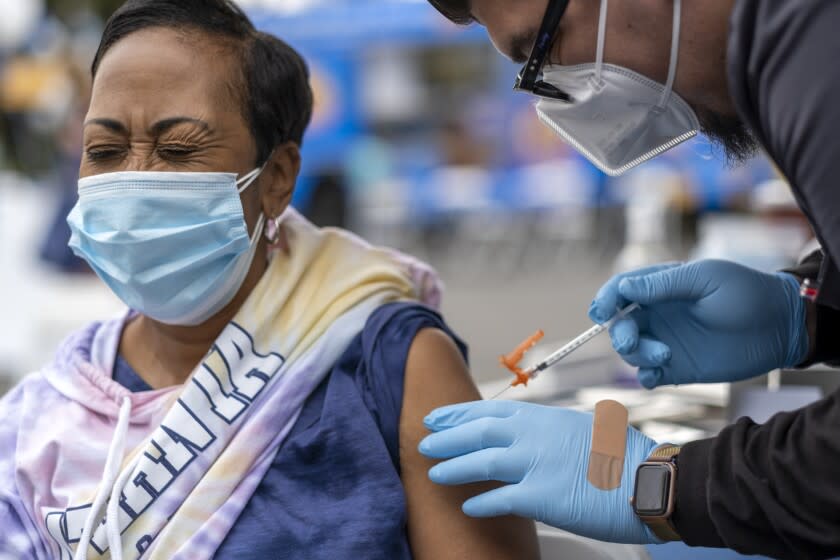When can younger adults get second COVID-19 booster shot? What we know

With coronavirus-positive hospitalizations increasing nationwide, some are asking whether a second COVID-19 booster shot will be made available to all younger adults under age 50.
Currently, the U.S. Centers for Disease Control and Prevention recommends a second booster for anyone 50 and older, as well as immunocompromised people 12 and older, at least four months after a first booster. The CDC also recently recommended a first booster shot for children age 5 to 11 after completing their primary vaccination series.
Officials and scientists have said the most convincing evidence to support a second booster shot has been seen in older adults and those with weakened immune systems; there have not been much data showing a benefit for younger adults.
Dr. Ashish Jha, the White House COVID-19 response coordinator, said a decision on widening availability of a second booster is up to the U.S. Food and Drug Administration and the CDC.
“I really do leave that up to FDA to decide based on looking at the evidence,” Jha said at a briefing Thursday.
Jha said the data he has seen on the effectiveness of a second booster have been in older adults.
He also said that children under age 5 could become eligible for their first COVID-19 shots as early as June 21 should the FDA and CDC greenlight the vaccination series for that age group.
An advisory committee to the FDA will meet June 14-15 and discuss policy recommendations to the federal agency, and the FDA is expected to shortly thereafter make a decision on whether to make the vaccination series available to the youngest children; the CDC then will subsequently make its own recommendation.
“We can’t ship vaccines until FDA has authorized these vaccines. And vaccinations can’t start until CDC has issued its recommendations,” Jha said. “So, we expect that vaccinations will begin in earnest as early as Tuesday, June 21, and really roll on throughout that week.”
“Now, it will take some time to ramp up the program and for vaccines to be more widely available. And as doses arrive in places throughout the country, more sites will have vaccines, more appointments will become available. And our expectation is that within weeks, every parent who wants their child to get vaccinated will be able to get an appointment,” Jha said.
This story originally appeared in Los Angeles Times.

